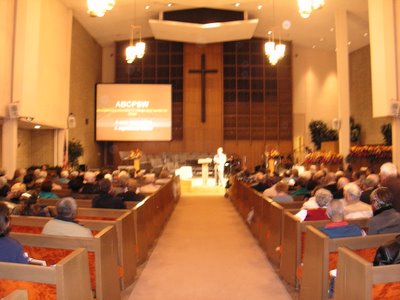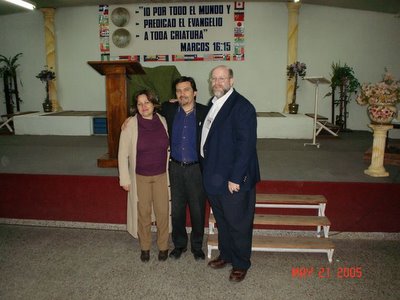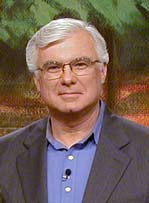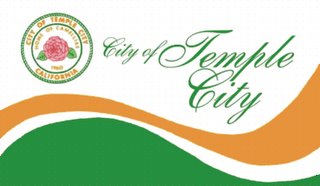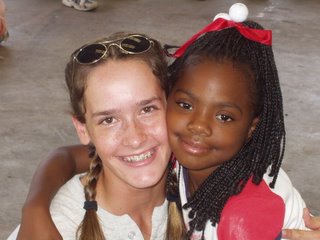 Above: one of the cartoons which inspired the current Cartoon Jihad.Below: this is slightly modified from a message I preached in January, 2002:
Above: one of the cartoons which inspired the current Cartoon Jihad.Below: this is slightly modified from a message I preached in January, 2002:
Is Islam a religion of peace? Do Christians, Jews and Muslims worship the same God? The answers may shock you…
The claim of Muhammad…the "most successful man in history."
The events of September 2001 and the continuing war against terrorism have made books on Islam best sellers. While the US and our allies have emphasized again and again that this is NOT a war against Islam, make no mistake that the terrorists earnestly believe that it is a religious war, and that the actions they take are in the name of Allah, the God is Islam.
The war did not arrive out of the clear blue sky of a September morning in New York. It is the culmination of a revival of 7th century Islam that can be traced back to the Wahabi movement in Saudi Arabia of the late 19th century. But most importantly, it can be traced back to Muhammad and the very nature of Islam.
Browsing a bookstore over 20 years ago, I came across a book entitled "The 100 Most Successful People in History." Intrigued, I pulled the book off the shelf, fully expecting that Jesus Christ would be ranked #1. Nope. Muhammad was #1-and this was from a totally secular publisher. The reason given was that Muhammad had excelled not only as a religious leader, but also as a political leader and as a military leader.
Muhammad's claim is based on his assertion that on the year we call 613 AD, the angel Gabriel came to him. Gabriel is reported to have said, "Recite, recite!" (which in Arabic is "Quran! Quran!"; hence the name of their holy book)
Islam and Mormonism have this in common: they are both post-New Testament faiths which claim to superceded Christianity on the basis of a revelation given through an angel.
It's not as if the Bible had not anticipated this possibility. In the Book of Hebrews, the first two chapters are devoted to the theme that while the Old Testament law was given through angels, the gospel is given through the incarnate Son of God. Paul's warning in Galatians 1:8-9 is even more pointed:
8But even if we or an angel from heaven should preach a gospel other than the one we preached to you, let him be eternally condemned! 9As we have already said, so now I say again: If anybody is preaching to you a gospel other than what you accepted, let him be eternally condemned!The word of God is insistent that the gospel of Jesus has been delivered in its final form in the person and words of Jesus Himself. If an angel from heaven shows up with a different message, to hell with him! (That's the bare bones meaning of "let him be eternally condemned.") Not once but twice Paul makes the point-that's how important it is. But Islam is founded on the very thing that the Bible says is a hellish offense.
Islam: the Essential Facts
1. The Creed of Islam: "There is no God but Allah, and Muhammad is His Rasul (Apostle, Spokesman-not merely Prophet).
2. The role of Muhammad: he received the FINAL revelation of God.
Who was Muhammad?
Born, c. 570 AD. He was orphaned, and raised by his uncle. He married the wealthy widow Khadijah, 595 AD. He became fascinated with the Jews and Christians in the Mecca area; there were also Arab Hanifs, who were monotheistic, but most Arabs at this time were polytheists-who worshipped many gods.
He cClaim that Gabriel appears to him, about 613 AD.
He wins only a few (about 40) converts in Mecca. Flees to Medina in 622 (the Hegira, the beginning of the Muslim calendar). Builds converts in Medina, and returns to conquer Mecca in 631 and dies the following year.
3. The origin of the Quran: given through Gabriel; about the length of the NT; a tangled mishmash of OT stories and the (non-chronological) story of Muhammad's revelations.
4. Six Pillars of Belief
a. One God, Allah
b. Angels (Good and bad; the jinn, "genie")
c. Holy Books
Suhuf: the (lost) scrolls of Abraham
Taurat: corrupted Torah
Zabur: corrupted Psalms
Injil: corrupted Gospels
Quran: the uncorrupted Recitation and revelation of God
d. Prophets: Adam, Noah, Abraham, Moses, Jesus (the Nabi Isa) and the Rasul Muhammad
e. Fate: kismet. (A sense of resignation to the will of Allah)
f. A Day of Judgment
5. Six Duties of Muslims
a. The Shahada (Confession: "There is no God but Allah and Muhammad is His Rasul."
b. Prayer-Five Times Daily (The "prayer spot"--a callous--develops on a pious man's head)
c. Fast of Ramadan: the month that commemorates the giving of the Quran.
d. Almsgiving.
e. Pilgrimage (Haj) to Mecca (predates Muhammad: the Ka'aba was a center of the worship of many gods prior to Muhammad.)
f. Holy War (Jihad). Two dimensions: inner struggle and outer.
What Muslims Think of Jesus-and of Christianity
1. Denies the deity and finality of Jesus.
Islam condemns the Christian doctrine of the Sonship of Jesus as a blasphemy against Allah.
Surah 30: "The Christians call Christ the Son of God…God's curse be upon them!"
Muhammad was misinformed about what Christians really believed. He thought Christians believed that the Trinity was not God the Father, Son and Spirit, but God, Mary and the Son!
Surah 19 ("Mary"): Mary did indeed conceive Jesus as a virgin, but not as God's son. "Such was Jesus the son of Mary. That is the whole truth, which they [the Christians] are unwilling to accept. Allah forbid that He Himself should beget a son!" Those who deny Muhammad's teaching are described as "unbelievers" who are in "the grossest error."
Jesus is regarded instead as the greatest prophet-until Muhammad. He is Nabi Isa, the Prophet Jesus, but Muhammad alone is regarded as the Rasul, or Spokesman of Allah. All holy books prior to the Quran are to be regarded as corrupted. We are even told that when Nabi Isa ascended to heaven (yes, Muslims believe in the ascension too! As a matter of fact, the shrine of the ascension on the Mount of Olives is a Muslim shrine, not a Christian chapel) he took the only uncorrupted copy of the Injil with Him to heaven (good trick since it wasn't written yet.)
2. Denies the crucifixion.
Surah 4:157-158: "They slew him not nor crucified him, but it appeared so unto them…but Allah took him unto Himself."
Muslim scholars have long taught (although the Quran itself is unclear on this point) that it was Judas, not Jesus who died on the cross!
3. All other Scriptures are corrupted
4. Jesus foretold coming of Muhammad! (John 14:16)
John 14:16: "And I will ask the Father, and he will give you another Counselor to be with you forever…"
But then the sentence goes on:
Vs. 17: "…the Spirit of truth." The Holy Spirit-not Muhammad! (But of course our Bible is "corrupted"!)
Aside: Tiring to read of all the supposed "corruption" of the Bible, because the textual history of the Quran is truly a mess. Within a generation of the death of Muhammad there were four rival versions of the Quran. A caliph named Uthman ordered that careful corrections were to be made in his copy-then all others were summarily destroyed. Statements made by early commentators on the Quran confirm that there were significant differences between the Quran they were familiar with and the one revered by millions of Muslims around the world today.
5. Jesus is coming back-to convert Christians to Islam!
A New Testament Evaluation of Islam
1. A corruption of Judaism and Christianity.
Legalistic. The Taliban: they make the Pharisees look good.
Attack on REDEMPTION. No cross.
Corruption of biblical stories-which are supported by historical and archaeological findings-unlike the confused meanderings of the stories you find in the Quran.
2. "An unpaid bill of Christian church", "a failure of Christian missions" (J. Christy Wilson, Jr.)
Sad, but true: even though Mecca is closer to Jerusalem than to Rome, the church in the 7th century had scarcely reached the peoples of the Arabian peninsula. If the church had penetrated Arabia as well as Greece and Italy, there never would have been an Islam!
3. Muhammad's claims are based on his own sheer authority, without supernatural verification
Hebrews 2:4:
God also testified to it by signs, wonders and various miracles, and gifts of the Holy Spirit distributed according to his will.4. Allah is NOT the God of the Bible
Hard to say, because I know fine Muslim people who sincerely believe that the God of Judaism, Christianity and Islam is the same God. I mean no disrespect. But while Allah is often described in terms similar to that of the God we meet in the pages of the Bible, he is not the same being.
First consider where the name Allah comes from. In the time of Muhammad, there was a center for the worship of 360 gods in the area where the great Ka'aba stone stands.
One of those gods was the moon god, the god worshipped by the Hashimite tribe, the Arabic tribe of Muhammad's ancestry. The name of this moon god was-can you guess? Allah. (Muhammad's father's name was Abdullah-servant of Allah, the moon god! That's why to the present day the crescent moon is a symbol of Islam.) Basically, what Muhammad did was to promote the god of his clan-the moon god-to the status of the one and only God.
This god is not the god of the Bible.
5. God is transcendent, but not immanent.
The God of the Bible is both transcendent and immanent. That is, He is high a holy a mighty, but He also comes close in love and care and concern.
Allah is described in terms of transcendence, but never immanence. There are 99 terms for Allah in the Quran, and according to Muslim lore, the camel knows the 100th name-that's why he has such a smug look on his face! And while ever Surah states that Allah is "the compassionate, the merciful," never once does the Quran state that so God loved the world. The idea of a God of love is foreign to the Quran. Instead, Allah is depicted as an all-powerful sheik. He does what he wants; just hope and pray that he shows compassion on you.
6. Muslims do not believe in original sin; therefore a Islamic utopia on earth is possible
This is a key point in understanding the current jihad. The devout Muslim does not believe in original sin. Sin does not come from the corruptions of the heart; it comes from bad influence. The worst influences are those which arise from the non-Muslim world, which by definition are not in submission to Allah. ("Islam" means "submission".)
The Muslim vision of the future is a world in submission to Allah-a totally Muslim world. The application of Quran in all aspects then should create a perfect world. But the true perfect world cannot be until all the earth follows the call of Muhammad.
That sets up inherent conflict. You see, Christians, who believe in original sin, have no illusions that all people will believe and be saved; we do not believe that nations will on their own accord turn to the Lord and be saved. That is NOT the mindset of Islam. Instead, they believe that…
7. All the world is divided into the Dar al-Harb (The Land of War) and the Dar al-Islam (Land of Submission)
That sets up CONFLICT, not just spiritual conflict but political and military conflict in the heart of the theology of Islam.
Which leads to the final point:
8. Warfare is part of the genetic code of Islam
As I speak, there are 40 armed conflicts going on in the world. 38 of the 40 involve Muslim aggression against non-Muslim neighbors. Islam's first century was an explosive crusade of conquest, from India in the east to Spain in the west. 90% of the peoples they conquered were Christians, and 90% of them were forcibly converted. That's why I think it is ridiculous that Muslims should become so angry about the Christian crusades of the Middle ages: they invented the crusade!
This is the key to so understanding so much. The idea that the territory of the Dar al-Islam should be surrendered back to the Dar al-Harb is deeply disturbing to the Muslim vision of the world, and of the ultimate victory of Islam. That is why Israel is hated so much. That is why bin Ladin was so livid about US troops being stationed on Saudi soil.
Muhammad himself was a general, and could be vicious. Once he had hundreds of Jewish men beheaded because they would not assist him in battle. He is quoted as saying, "The sword is the key of heaven and hell; a drop of blood shed in the cause of Allah, a night spent in arms, is of more avail of two months of fasting or prayer: whosoever falls in battle, his sins are forgiven, and at the day of judgment his limbs shall be supplied by the wings of angels and cherubim."
Is Islam a religion of peace? You can find beautiful and noble and lofty ideals in the Quran. The vast majority of Muslims are peaceful people. They repudiate the actions of the terrorists. But it is undeniable: bloodshed is in the genetic code of Islam, the original programming you might say, of Islam. Muslims today who repudiate the sword as the means of extending the reach of Islam do so at the risk of denying the origins of their own faith.
Jesus: the Hope of the Muslim World
Back in October, 2001, we had Irving and Betty Silvia as our guests on a Wednesday evening. Betty is the widow of J. Christy Wilson, my old missions professor. The Wilsons lived many years in Kabul, Afghanistan, and Irving made a wonderful point. "When I saw the Twin Towers fall, my heart broke for the people who were dying," he said. "But at the same time I knew that it was also the beginning of the fall of Islam."
Yes, there were people dancing in the streets in some places in the Mideast when the attack occurred. What has gone unreported is the millions of Muslims who are ashamed. More than ashamed, there are many questioning their faith. They know that what I've said is true: that violence is inseparable from Islam.
The Jesus way is different. He is the one who speaks of a loving Father in heaven, who invites us to follow Him, and who tells us that He's come for the weary and heavy-laden.
Today in India, there are large numbers of lower-caste untouchables who were considering becoming Muslim. Not anymore.
The gospel is quietly being preached to the refugees from Afghanistan along the Pakistan border. And the last 20 years have seen more converts to Christ from the shadows of Islam that the previous 1300 years.
There are millions of Muslims living in non-Muslim countries-such as the US. I believe that the next 10-20 years, hundreds of thousands of these Muslims will find in Jesus the true knowledge of God.
Jesus is the hope-the hope of Afghanistan, of Iran, Iraq, of Egypt and Indonesia.
Jesus died for the millions trapped in the noose of Islam, the great deception.
May I urge you:
To show love toward your Muslim neighbors.
To pray for them and for the Muslim nations around the world.
To trust God for His deeds of redemption and hope. For I tell you, He has not
written off even Saudi Arabia, the land of Muhammad, and therefore neither can we His people.
